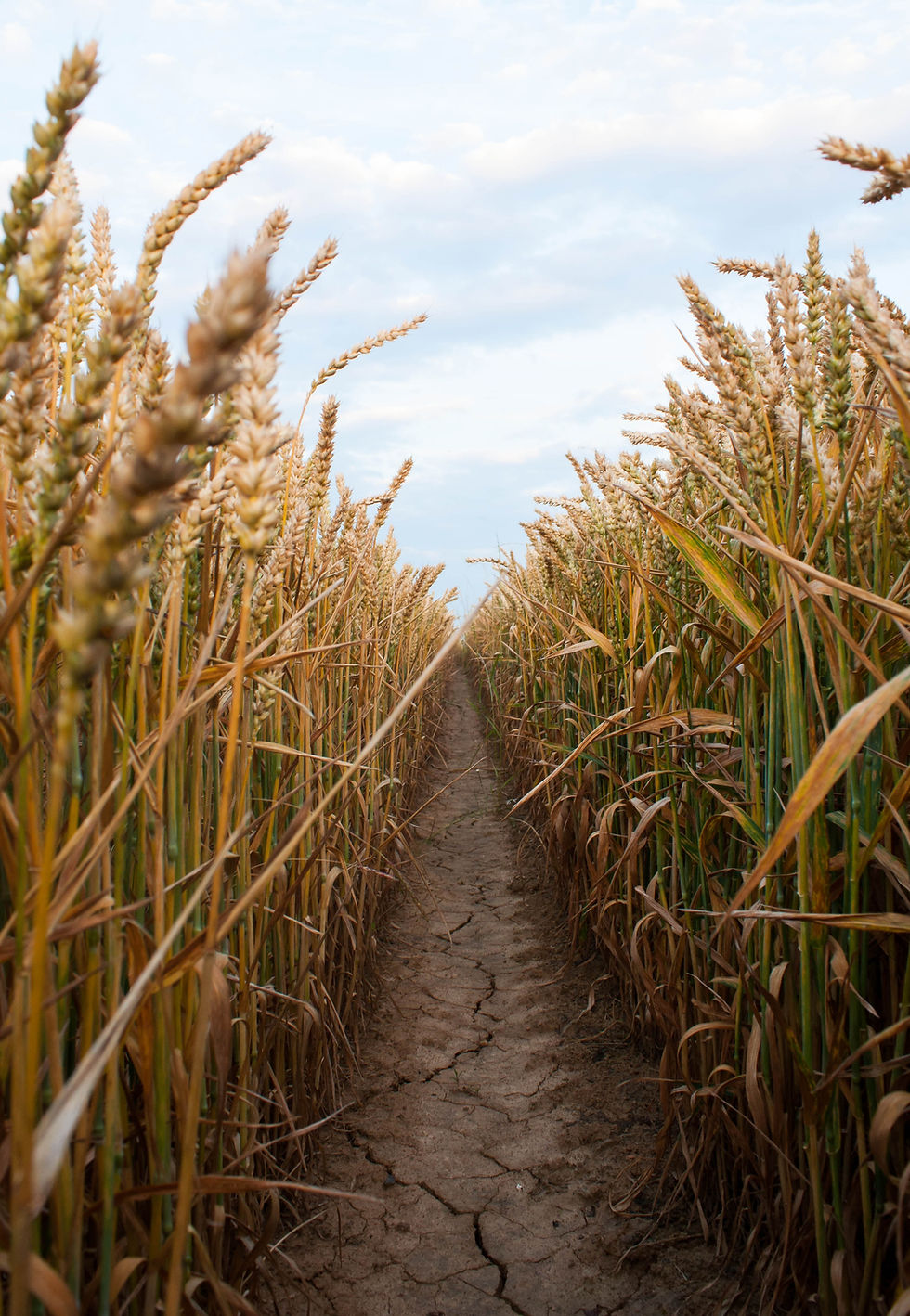Navigating Gluten-Free on a Plant Based Diet
- Nichole Dandrea-Russert

- Feb 27, 2021
- 3 min read
Updated: May 30, 2022

Wheat has been a significant form of sustenance for humankind since it was first cultivated as a food crop over 12,000 years ago. Birthday cake, mac and ‘cheeze’, or a classic PB&J are simple pleasures for many of us but can be a source of pain and discomfort for many others. For individuals with a wheat allergy, non-celiac gluten sensitivity (NCGS), or celiac disease (CD), it is the latter.
Celiac disease is a genetic, autoimmune disorder caused by sensitivity to gluten, a protein found primarily in wheat and certain cereal grains, resulting in inflammation and flattening of the cells lining the small intestine, causing nutrient malabsorption. Other negative health outcomes include infertility, stunted growth, skin rashes, and anemia. The only current treatment of CD is the avoidance of gluten for life. Members in a shared household often collectively eliminate gluten, irrespective of whether they have the condition, as any trace of it can trigger negative outcomes for individuals with the disease.
Non-celiac gluten sensitivity (NCGS) is a sensitivity to gluten, wherein consumption of gluten results in bloating, diarrhea, flatulence, stomach pain, and/or even non-gastrointestinal symptoms such as headaches and joint pain. While individuals with NCGS can exhibit symptoms of great severity, they are not susceptible to intestinal damage as is the case with CD.
Avoiding gluten may have seemed like a treacherous endeavor up until even just a few years ago, but today’s food industry caters to many different diets, allergies, and sensitivities. Finding nutrient-dense options on a plant-based, gluten-free diet no longer has to be an excruciating task.
1. Focus on whole-food sources.

If you look at the ingredient label of many highly processed plant-based items such as vegan meat alternatives, veggie-based cheeses and spreads, dressings, condiments, and packaged snacks, you will likely find gluten when it is not necessarily expected. Gluten is used to provide texture and contribute to the consistency of many foods. If you prioritize buying minimally processed foods, not only will you avoid a lot of unnecessary filler ingredients, including gluten, but you will likely be nourishing your body with more nutrient-dense options. Options include gluten-free whole grains such as amaranth, teff, millet, buckwheat (not a wheat product, despite its name!), quinoa, rice, and gluten-free oats. Of course, there are other whole food options that are naturally gluten-free like fruits, vegetables, legumes, nuts and seeds.
2. Look for the GF label.

You might be surprised to hear that many naturally gluten-free foods contain traces of gluten. While this may be acceptable for some individuals with NCGS, it can have severe repercussions for those with CD and wheat allergies. Always look for the GF label or a note that mentions there may be cross-contamination with allergens, specifically wheat. And again, focus on mostly whole-food sources.
3. Make a grocery list.

Make a grocery list with minimally processed, nutritious options. Whole fruits and vegetables are always GF! Plant-based nut milk, nuts and seeds, nut butter, and plant-based yogurts should all be OK, but check to ensure there is no cross-contamination due to processing on shared equipment. You don’t have to live without pasta or bread, or really any of the originally gluten-containing foods you once enjoyed. Include some of these yummy items on your grocery list for your next shopping trip.

Enjoy your next GF shopping trip and feel free to share your top GF grocery picks below!
Download the helpful handout below for more information!
Want to dive further into plant-based eating?
Visit all plant-based recipes here.
Visit the blog for more plant-based articles here.
Get 5-minute plant-based dressing recipes here. (FREE!).
Book a 15-minute FREE consultation here.
Get a customized weekly meal plan with recipes and shopping lists, as well as email and texting support here ($97 a month).
Sources:

Hi! My name is Mariam Arshad and I am a graduate dietetic student in the Coordinated Program at Georgia State University. I take baking very seriously, and I always find ways to sneak in healthy ingredients! My interests in the nutrition world revolve around gastrointestinal conditions and gut health, and my dream is to be able to utilize my knowledge and passion for nutrition to help improve the quality of life for people suffering from GI conditions!




